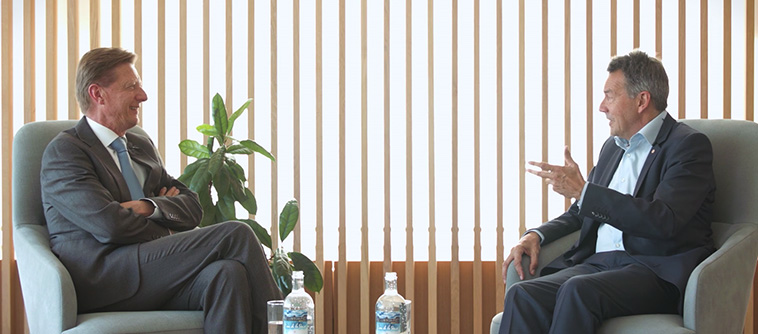Bridging the humanitarian governance triangle of politics, power and ethics is a complex task, but it’s one Peter Maurer was destined to achieve.
Maurer is no ordinary leader – the career diplomat led Switzerland’s integration into the United Nations in the early 2000s, serving as the country’s first Ambassador to the United Nations. Now with eight years at the helm of the International Committee of the Red Cross (ICRC), he has a clear view of how to ensure good governance in non-profits and the unique challenges of his organization in particular.
The importance of the purpose-driven organization
“Defining the ICRC’s purpose is not necessary because everyone who comes here knows what the purpose is,” says Maurer. “It is so self-evident that it doesn’t need to be restated. For 160 years it has been enshrined in the practice of the organization, in international legal documents: the clear purpose to bring humanity to the very worst situations of violence and conflict.”
While this is self-evident for humanitarian organizations like the ICRC, it is not necessarily so for companies that “sell chewing gum or cars” in Maurer’s words – businesses that must take time to define their purpose.
At the ICRC, all staff also hold firm beliefs on the important mandate of the organization. “In a purpose-driven organization like ours, everybody believes they are a part of the purpose,” he says.
And, especially in recent times during the COVID19 crisis, this purpose has helped bolster the ICRC’s success.
“After three to four months of strong purpose in action,” says Maurer, “we are – despite all the restrictions – at 85 % of delivery of services… I deeply admire what our staff were able to do fuelled by that strong purpose – they rechannelled supply chains, reached out to networks and tried to deliver services remotely where possible.”
Examining the non-profit board
While the concept of a purpose-driven organization is gathering steam in the world of governance, drawbacks do exist. Humanitarian organizations and NGOs must be wary of putting purpose before practice.
“We need to embrace the best practices from the private sector, universities, hospitals and beyond. I look for experience in running an organization other than a purpose driven organisation to apply the best experiences to bring to the management of ICRC,” explains Maurer.
Maurer’s vast geopolitical knowledge gained from decades as a diplomat is certainly one of his biggest strengths.
“I strongly believe that creating a trustful, confidential space for dialogue between parties – especially when dealing with the polarization of conflict dynamics – is critical,” he says.
But must all board members upskill their geopolitics and diplomatic knowledge to succeed?
“There is an advantage of knowing something about geopolitics – it is uncontested,” says Maurer. “You need diverse skills in a board in the ICRC as well. Not everybody has to understand the intricacies of conflict and power politics. The solid diversification of skills and the ability to connect the dots in a complex world is crucial for boards.”
Peter Maurer’s full comments are available in “Board lessons from humanitarian governance” in the High Performance Boards Conversation Series with IMD Professor of Governance Didier Cossin.
The highlights video of Peter Maurer’s conversation in “Board lessons from humanitarian governance” is available below.



